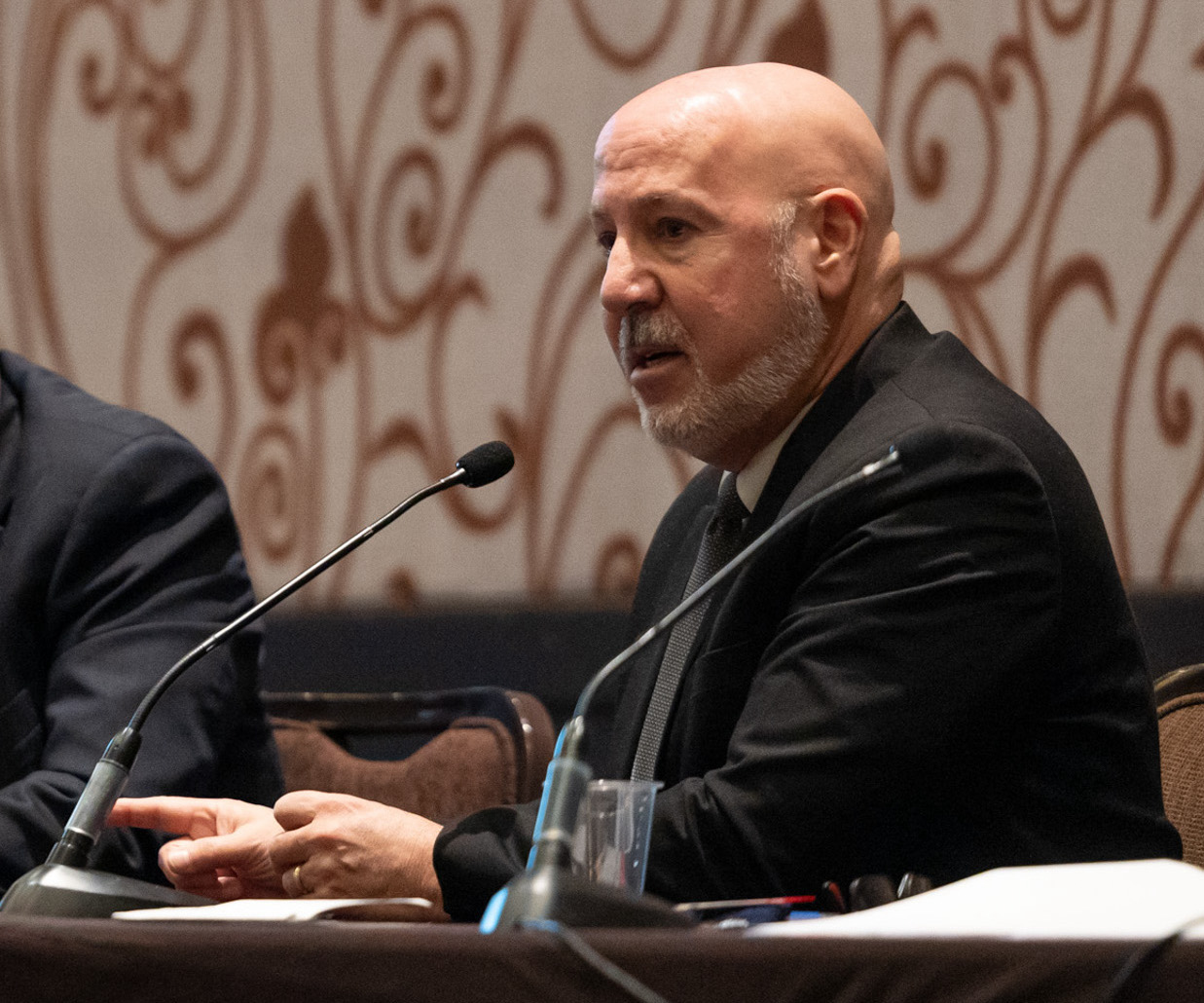BOSTON and MANCHESTER, N.H. – On-again, off-again, and in-effect—tariffs are a reality in many forms—but what does it mean for the construction industry and the practice of construction law? Ronald D. Ciotti, partner, Hinckley Allen, Boston, Mass., and Manchester, N.H., talked about tariffs at last year’s Construction Super Conference and his remarks remain relevant, especially as a trade war heats up.
The following is an excerpt from Ciotti’s extended comments on tariffs. He addresses key questions: How can attorneys protect their clients in the bid, procurement, and contract phases? What’s the role of a change-in-law provision? How should attorneys on behalf of construction companies be dealing with tariffs?
 “You must protect yourself during your bid and procurement phases and in your contract. The way you are going to do this during your contracting phase is to make sure that your contract specifically covers tariffs or has a material price escalation clause.
“You must protect yourself during your bid and procurement phases and in your contract. The way you are going to do this during your contracting phase is to make sure that your contract specifically covers tariffs or has a material price escalation clause.
“Some of you may say, ‘Well, I use AIA forms and they have a Change-in-Law provision and that should cover me. But is a tariff a change in the law? Probably not. Tariffs are customs and duties imposed through an existing law. Some of you may say, ‘I use ConsensusDocs and the ConsensusDocs 200’s Change-in-Law provision includes taxes.’ But, Is a tariff a tax? Maybe, but do you really want to be in front of a judge on a “maybe”? Probably not.
“If your contract does not have a change-in-law provision, make sure it does. Secondly, if it does have a change-in-law provision, please add the term, ‘including taxes and tariffs’ because tariffs are here and more are coming!
“The best way to protect yourself from the impact of tariffs and other causes of material price volatility is a good material price escalation clause. I did material price escalation presentations in 2017 and 2018, and nobody was all that concerned until lumber tripled in 2020. Now everybody wants to hear about material price escalation clauses due to tariffs.
“As COVID has sort of gone into the past a little bit, material price escalation hasn’t been as critical of a concern, even though since then we’ve still witnessed price spikes in various materials. Material price escalation clauses are still a critical clause within your contracts. There’s really three different types of MPE clauses: day one clauses; threshold clauses; and delay clauses. You can also have a mutual or bilateral clause.
“Day one clauses just means from day one when you sign that contract, the risk of a material price increase shifts to the project owner. A Threshold clause means you’re willing to share the risk with the owner. In other words, the parties negotiate a percentage price increase that the contractor will accept under its cost and the owner will take on the cost of any price increase above that percentage. In other words, the parties share the risk of a price increase. A mutual or bilateral threshold clause is where the parties agree to share the risk of a price increase as well as share the benefit of a price decrease in the same percentage negotiation.
“A delay clause which can be used with a day one or threshold clause just holds prices until a certain date.
“I would also advise you to shorten the duration of validity of your bids, and to discuss the impact of tariffs with your owners during the bid process, for relationship management. Everybody is aware of the possible impacts of these tariffs, so it’s good to be upfront in your bid. Discuss with your project owner about sharing the impact, alternative materials, early procurement, and other processes that will allow their project to run smoother. It will help provide consistency to your budget and improve the owner/contractor relationship.”

